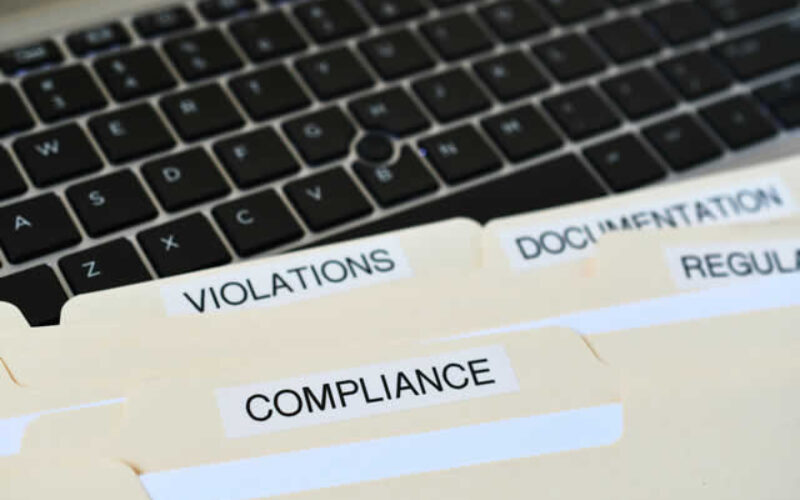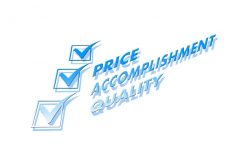This blog will break it down for you, explaining what it is, who it impacts, and the penalties for non-compliance. We’ll also provide practical tips for meeting the BOI Act requirements and resources for more support.
Let’s get started.
- post content
- Introduction to Beneficial Ownership Information (BOI)
- Understanding the U.S. BOI Act: Enactment, Purpose, and Scope
- Impact of the BOI Act: Who Is Affected and Why It Matters
- Filing Requirements: Who Must Comply, When, and How
- Penalties for Non-Compliance: Understanding the Risks
- Best Practices for Meeting BOI Act Requirements
- Resources for More Information and Support
- conclusion
- collective business notes
Introduction to Beneficial Ownership Information (BOI)
Understanding regulatory requirements is crucial for any small business. The BOI Act is one such regulation that has significant implications for business owners, financial institutions, and compliance officers.
Its primary purpose is to increase transparency in corporate ownership, making it easier to combat money laundering, terrorism financing, and other financial crimes.
-
What is Beneficial Ownership?
Beneficial ownership refers to the individuals who ultimately own or control a company. These are the people who benefit from the company’s profits and assets, even if their names don’t appear on the official records.
-
Why is BOI Important?
The BOI Act aims to provide a clear picture of who owns and controls companies operating in the U.S. This transparency is crucial for law enforcement agencies to track and prevent illegal activities.
-
Who Should Care?
If you’re a small business owner, financial institution, or compliance officer, understanding the BOI Act is essential. Non-compliance can lead to severe penalties, so it’s important to stay informed.
Understanding the U.S. BOI Act: Enactment, Purpose, and Scope
The BOI Act was enacted to address the lack of transparency in corporate ownership structures. Let’s take a closer look at its history, purpose, and scope.
-
When Was It Enacted?
The BOI Act was part of the Anti-Money Laundering Act of 2020, which was signed into law on January 1, 2021. This legislation represented a significant step forward in the fight against financial crimes.
-
The Purpose of the BOI Act
The primary goal of the BOI Act is to create a centralized registry of beneficial ownership information. This registry helps law enforcement agencies identify and investigate illicit activities more effectively.
-
The Scope of the BOI Act
The BOI Act applies to most companies operating in the U.S., including corporations, limited liability companies (LLCs), and similar entities.
However, certain entities, such as publicly traded companies and governmental organizations, are exempt from these reporting requirements.
Impact of the BOI Act: Who Is Affected and Why It Matters
The BOI Act has far-reaching implications for various stakeholders. Understanding who is affected and why it matters can help you better prepare for compliance.
-
Small Business Owners
Small business owners are among the primary stakeholders affected by the BOI Act. If you own or control a small business, you must comply with the reporting requirements to avoid penalties.
-
Financial Institutions
Financial institutions play a critical role in enforcing the BOI Act. They must verify the beneficial ownership information provided by their clients, ensuring that all required data is accurate and up-to-date.
-
Compliance Officers
Compliance officers are responsible for ensuring that their organizations adhere to the BOI Act’s requirements. This includes collecting, verifying, and reporting beneficial ownership information to the relevant authorities.
Filing Requirements: Who Must Comply, When, and How
Understanding the filing requirements of the BOI Act is crucial for compliance. Let’s explore who must comply, when to file, and how to submit the necessary information.
-
Who Must Comply?
Most companies operating in the U.S. must comply with the BOI Act’s reporting requirements. This includes corporations, LLCs, and similar entities.
However, certain entities, such as publicly traded companies and governmental organizations, are exempt.
-
When to File
Companies must file their beneficial ownership information with the Financial Crimes Enforcement Network (FinCEN) within a specific timeframe.
For newly formed entities, the information must be filed within 30 days of formation. Companies created before January 1, 2024, have until January 1, 2025.
-
How to File
Filing beneficial ownership information involves submitting specific data to FinCEN, either online or through a designated reporting portal. This data includes the names, birthdates, addresses, and identification numbers of the beneficial owners.
Penalties for Non-Compliance: Understanding the Risks
Non-compliance with the BOI Act can result in severe penalties. Understanding these risks can help you take the necessary steps to ensure compliance.
-
Financial Penalties
Failure to comply with the BOI Act’s reporting requirements can result in significant financial penalties. These fines can range from $500 to $10,000 per day, depending on the severity of the violation.
-
Criminal Penalties
In addition to financial penalties, non-compliance can also lead to criminal charges. Individuals found guilty of willfully providing false information or failing to report beneficial ownership data can face imprisonment for up to three years.
-
Reputational Damage
Non-compliance with the BOI Act can also damage your company’s reputation. Customers, investors, and business partners may lose trust in your organization, leading to potential financial losses and diminished business opportunities.
Best Practices for Meeting BOI Act Requirements
To ensure compliance with the BOI Act, it’s essential to follow best practices. These guidelines can help you meet the reporting requirements and avoid penalties.
-
Maintain Accurate Records
Keeping accurate records of your company’s beneficial ownership information is crucial for compliance. Regularly update this data to ensure it remains accurate and complete.
-
Implement Robust Verification Processes
Implementing robust verification processes can help you ensure the accuracy of your beneficial ownership information. This includes verifying the identity of beneficial owners and cross-referencing their data with other sources.
-
Stay Informed About Regulatory Changes
Staying informed about regulatory changes can help you stay ahead of compliance requirements. Subscribe to industry newsletters, attend webinars, and participate in relevant training programs to keep your knowledge up-to-date.
Resources for More Information and Support
Accessing reliable resources can help you better understand the BOI Act and its requirements. Here are some valuable sources of information and support.
-
FinCEN Website
The FinCEN website provides comprehensive information about the BOI Act, including reporting requirements, filing instructions, and frequently asked questions.
-
Industry Associations
Industry associations, such as the American Bankers Association (ABA) and the National Small Business Association (NSBA), offer valuable resources and support for businesses affected by the BOI Act.
-
Professional Advisors
Consulting with professional advisors, such as attorneys, accountants, and compliance consultants, can help you ensure compliance with the BOI Act. These experts can provide personalized guidance and support tailored to your specific needs.
other related articles of interest:
Reasons To Invest in Compliance Safety Management Services
5 Common 401K Compliance Mistakes Small Business Owners Commit
Conclusion and the Importance of Staying Compliant
The U.S. Beneficial Ownership Information (BOI) Act is a crucial regulation aimed at increasing transparency in corporate ownership. By understanding its requirements and following best practices, you can ensure compliance and avoid penalties.
Staying compliant with the BOI Act is essential for small business owners, financial institutions, and compliance officers. By maintaining accurate records, implementing robust verification processes, and staying informed about regulatory changes, you can protect your organization from the risks associated with non-compliance.
For more information and support, visit the FinCEN website or consult with professional advisors. Taking these steps can help you stay ahead of compliance requirements and ensure your business’s continued success.
Image Credit: beneficial ownership information act by Pixabay
end of post … please share it!
-------------------------------------------------------------------------------------------------------------
-------------------------------------------------------------------------------------------------------------
home remodeling reference (links to internal page)
 |
 |
 |
 |
| directory | photos | forms | guide |
Helpful article? Leave us a quick comment below.
And please share this article within your social networks.












